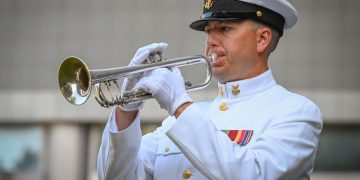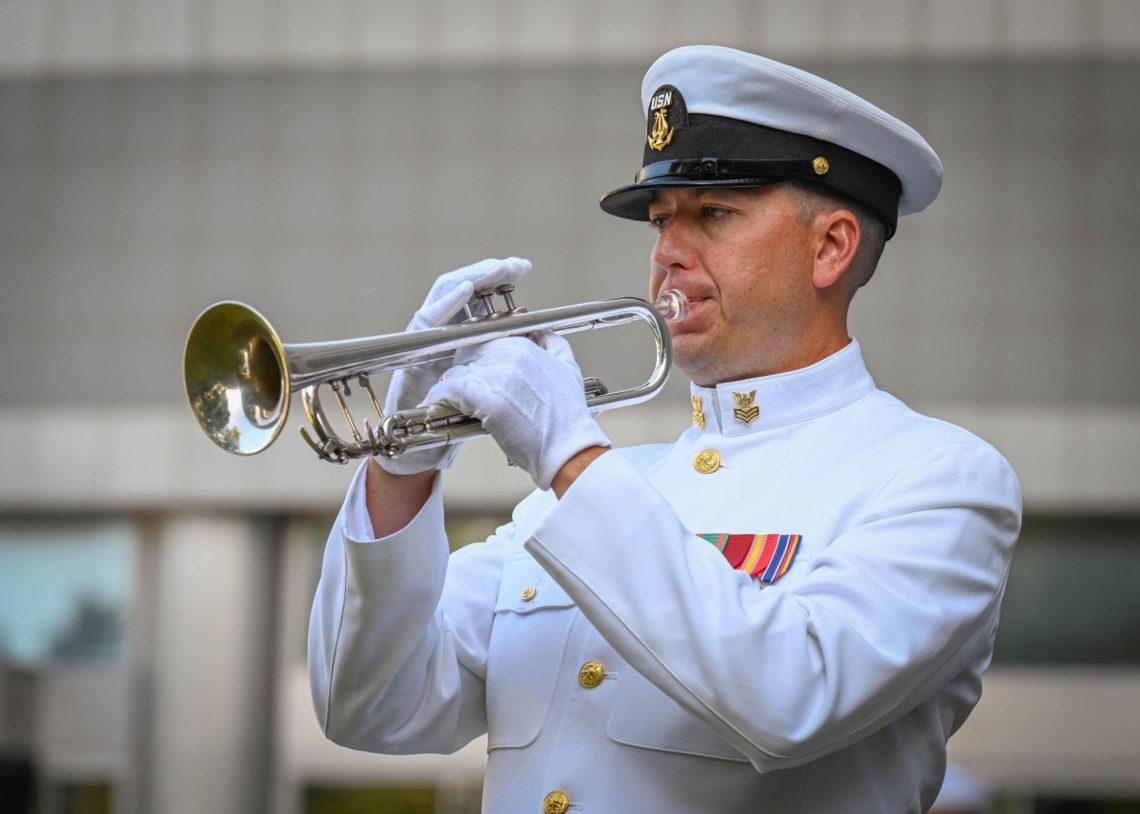Q: How did you first get introduced to the trumpet, and what made you want to start playing it?
A: My father was a high school band director, so my path was basically determined at birth! I started on an old Conn cornet when I was eight years old.
Q: At what point did you realize you wanted to play trumpet professionally?
A: I realized it quickly during my freshman year of college. While I started as a music education major, my professor made it clear he was going to treat me the same as the performance majors. I switched to music performance the following year.
Q: Who are some of your most influential teachers or mentors?
A: My father who was my first trumpet teacher. Ron Fortune was a great trumpet player and my middle school band director. Chris Heil was my first “real” trumpet teacher who also introduced me to the Bill Adam routine. My undergraduate professor, Steve Leisring, graduate school professor John Rommel, and my friend and mentor Scott Moore from the Memphis Symphony, all made a huge impact on me. I wouldn’t be where I am without any of them.
Q: What did the audition process look like when you auditioned for the Navy Band?
A: I would say typical of any other band or orchestra audition. I sent my resume, flew to Washington, D.C., played three rounds of an audition and was fortunate enough to win.
Q: What are some of your official jobs and duties?
A: I was hired as a trumpet player in the Concert/Ceremonial Band, but we all contribute to the organization with additional duties. I am also a drum major and leading petty officer in the ceremonial department, command sponsor program coordinator, and play in the brass quartet.
Q: What is your favorite part of the job?
A: I’m able to make a living playing the trumpet, which is such a rare thing. But more specifically, I love the variety the job provides. Day to day and week to week, the job, responsibilities and demand can be totally different.
Q: How did becoming a drum major change your perspective on some of the ceremonies of the Navy Band such as funerals at Arlington National Cemetery?
A: Becoming a drum major helped me gain an appreciation for how logistically complex so many of the ceremonies we do can be. It’s impressive how flawlessly the Ceremonial Band operates on a day-to-day basis with so many moving pieces working behind the scenes.
Q: January was quite a busy month by marching in the Rose Parade, then immediately transitioning back to Washington D.C., to participate in rehearsals and the state funeral for President Carter, and then preparations for the inauguration. Is this a typical month for the Ceremonial Band?
A: It was a typical month in terms of how busy it can be, but the travel and the high visibility of all these jobs made it feel unique. Typically, the Ceremonial Band will support three or four major events over the course of the year, but it’s rare they would take place in the span of a month.
Q: Can you tell us about your role in President Carter’s funeral? Talk about the importance of Taps.
A: I was assigned to render Taps at President Carter’s funeral at graveside in Plains, Georgia. Taps is the most solemn and recognizable bugle call. It’s a symbol of honor and respect but also acts as a final farewell to someone who has served. It takes place at the end of every military funeral after the rifle volley and before the folding of the flag. In a day full of goodbyes, it really is the final goodbye and can provide closure for families and loved ones. It was truly an honor.
Q: What was it like preparing for the inauguration?
A: It’s very cool to be part of the inauguration every four years! The band takes preparation seriously, with extra marching rehearsals and defining expectations ahead of time, making sure we bring our best professional selves, with even more emphasis on the usual: fresh haircuts, pressed uniforms, polished shoes, etc.
Q: Do you have any advice to pass along to students considering a career in military music?
A: I’ll try to keep it succinct:
– Become obsessed with what you’re doing. Don’t try to optimize your practice or your learning, just overwhelm yourself with new information, new recordings, new books, new pieces, new techniques and new ideas. You can figure out what works and what doesn’t along the way.
– Take auditions. The process of auditioning is unique and separate from so much of everything else we practice. It can only be practiced and improved by doing it.
– Play. All. The. Time. The best thing I did as an undergraduate was never say no. I took every opportunity to play I could and after four years I had gotten to play a lot of repertoire in a lot of different styles, and it set me up very well going forward.
– Play for everyone. Take lessons, play for people, play for friends and colleagues whose opinions you trust. Be open-minded to new ideas and new ways of doing things and trust you don’t have all the answers. Once again, you’ll figure out what works best for you along the way.
– And don’t be afraid of boot camp. You can do it!
NavyBand.Navy.mil





















